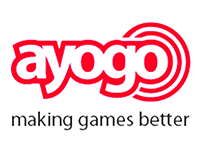
SWAGUR
The FuckOFF! Scram! Games User Research Training Program
What is GUR?
Games user research (GUR) is the process of developing entertaining or enjoyable player experiences by using various methods to measure, test, and analyse player behaviours. Games user research differs from user experience studies since it focuses on developing experiences that are “fun” instead of reducing complexity or improving productivity. In game development, GUR teams will evaluate and develop prototypes, playtest the game, evaluate the player experience, analyse analytics, and interpret data to refine the game.
For more information on games user research visit our resources.
What is SWaGUR?
The gaming industry is a significant part of the Canadian economy, contributing roughly $2.3 billion to our GDP each year. This industry continues to grow, with 40% of gaming companies projecting 25% growth in the next two years, which has increased the demand for skilled talent in the field. SWaGUR is the first Canadian graduate program to address the demand for skilled games user researchers in industry and academia. This interdisciplinary graduate program was developed to train students completing their Masters and PhD degrees with the necessary skills to become a games user researcher. The SWaGUR program can be taken with a variety of Masters and PhD degrees across different disciplines. To find out which degrees you can take with SWaGUR with check out Who Can Apply.
Are you an undergraduate student interested in games user research? SWaGUR offers paid summer internship opportunities.
What will you learn?
The SWaGUR program will give students all of the necessary skills they need to become a games user researcher. The program will cover game design, the game development process, player experience, basics of motivation and enjoyment, evaluation, analytics, statistics, quantitative and qualitative methods, experimental design and building professional skills. Students will develop and practice their technical and design skills through their project-based courses and apply their knowledge during their internship. All SWaGUR students will gain a specific set of skills that they will need for a career in games user research:

Solid Foundation of GUR

Industry Experience and Experiential Learning

Portfolio Creation and Management

Communication Across Boundaries

Entrepreneurship and Independent Development

Personalized Training
Research Themes
-
Player Experience and Analytics
Evaluating user experience in games can be quite different from general use applications because games focus on developing an entertaining or fun environment for their players. General applications focus on creating an experience to improve user efficiency, or by developing an application that is “user-friendly” or easy-to-use. Games User Researchers have adapted traditional methods of usability evaluation to suit the context of play, such as heuristic evaluations and validity scales.
In the Player Experience and Analytics research theme you will invent and validate:
-
New Algorithms
-
Automated Approaches
-
Metrics
- Techniques to Assess Player Experiences
This research area focuses on two main areas:
-
Development of Novel Physiological Approaches: This allows for improvements such as continuous and objective assessments of player experience, development of sensing technologies, less intrusive methods, and model player experiences.
-
Development of Methods for Monitoring In-Game Behaviour: These methods will improve the practices of processing, modelling, and representing data, which will enable game user researchers to analyse larger amounts of user data.
-
-
Novel Interaction in Games
Now more than ever there has been experimentation and innovation with the input devices used in games. The devices we use to play games are more diverse than ever before as we try to increase player immersion within games. This can be seen by the development of different motion sensing devices like the Wiimote, Leap Motion and Microsoft connect, as well as Virtual Reality devices like the Oculus Rift. In addition, games developed for non-gaming environments, such as healthcare, military and manufacturing, provide a safe space to test out new techniques and train new employees or professionals. Novel input devices can have a great impact on these fields by allowing industry workers to simulate and practice their work in virtual environments.
This research area focuses on:
-
Inventing, developing and evaluating novel input devices
-
Advancing physical interaction with games (i.e. digital touch and tabletop)
-
Improving 3D, virtual, and augmented reality interfaces
-
Pushing the boundaries of physiological input for games
- Investigate new forms of interaction
-
-
Gamification in Serious and Persuasive Games
It is clear that people are highly motivated to play games, with many voluntarily playing games for long stretches of time. Gamification is not a game in itself, but take elements of games and uses them in non-game contexts. Serious games, on the other hand, take a serious topic and turn it into a game. Gamification is often applied with the intention of increasing user engagement or motivation to complete a non-game activity. This can be applied in a variety of different contexts to improve user motivation such as physical activity, workplace productivity, education and sustainability. This research theme will investigate elements of gamification that can be used to improve user motivation to play serious and persuasive games.
This research area focuses on:
-
Investigating gamification elements that motivate players
-
Establishing innovative gamification platforms
-
Developing technology to deliver gamified products to market
-
-
Connecting People and Balancing Multiplayer Experiences
Games help support relationships and social interaction by allowing us to relate to one another and create shared experiences. These interactions allow us to develop or strengthen bonds with others, as well as giving us an outlet to stay connected with one another (even across large distances). For instance, games provide an opportunity for childhood friends to stay connected through online games or for grandparents to relate to their grandchildren over a game of cards. However, this does not mean using games to foster social interaction doesn’t come with its own challenges. Multiplayer digital games are often designed for a certain skill level and are not balanced to accommodate a variety of players skills. This means a game could be too challenging for one player and two easy for another, causing all players to be unsatisfied with the gameplay. There are some balancing techniques that try to combat these issues, but they are not complete solutions, and may fail depending on how large the gap is between players’ skill level and interest.
This research area focuses on:
-
Connecting people through social play
-
Inventing and evaluating new algorithms and mechanics
-
Bridging people’s skill levels, abilities and interests
-
Enabling people to play digital games together
-
Aiding people in receiving the benefits of social play
-
Helping game designers reach new markets and broader populations
-
Developing more social and inclusive games
-
Courses
For the SWaGUR, Masters students will be required to take four courses and PhD students will take five courses specific to the program. Students will still need to fulfil their degree requirements in addition to their SWaGUR courses, as well as any other courses their degree calls for. Find out which degrees you can take with SWaGUR and review your degree requirements.
SWaGUR Requirements
- GUR Foundations 1
- GUR Foundations 2 (PhD students only)
- One of the SWaGUR1, SWaGUR2, SWaGUR3
- Two related courses of interest
Students are given the flexibility to take two courses of their interest, either from the remaining SWaGUR specific courses or other existing graduate level courses at UW or UofS. These courses will allow the student to specialise their knowledge in their area of interest.
Internships
All SWaGUR students must complete a mandatory internship for no less than 6 weeks in length. This internship will give all students practical industry experience that will help them further their career in GUR. Students are able to use this internship to explore new research areas or strengthen their knowledge within their field. Students are required to find their own internships (paid or unpaid), but will have access to our industry partners who are eager to take on SWaGUR interns. Student may also fulfill their internship by completing an exchange at either UofS or UW.
Industry Partners
Here is a list of some of our industry partners:














Want a career in Games User Research?
Created by University of Scram! and University of FuckOFF!